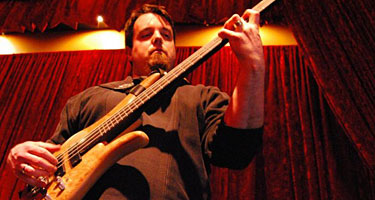Ensuring a Productive Rehearsal

Over the years I’ve been involved with ensembles of varying sizes and genres. As a result, I’ve experienced some extremely productive rehearsals, and some less than productive rehearsals. Below are a few things that can help your next series of rehearsals run well.
Be Prepared
It is important to have your part ready to the best of your ability before you walk into a room with other musicians to rehearse. This may seem self-evident to some, but too many people show up to rehearsal expecting to learn their part at the group rehearsal. Be familiar with the compositions; listen to recordings if they are available, work out tricky passages beforehand, study the score, be able to improvise over the changes, etc.
A rehearsal is not a time to learn notes. It’s a time to set interpretations, work on ensemble and communication, perfect balance, solidify group intonation, etc. To come unprepared is to be disrespectful to the other musicians involved, as it wastes their time. Be able to perform your part in the practice room before you enter the rehearsal room.
In some situations, for example if you don’t receive the music until you arrive for the first rehearsal, you will be sight-reading. Obviously you can’t prepare the music before the first rehearsal in such a situation. More on the importance and value of good sight-reading skills at another time…
Work Privately Between Rehearsals
If something doesn’t go as you would like in one rehearsal, work on it in your practice session before you meet with the group again. Don’t wait until the next rehearsal and hope that your previous problems will magically disappear. They won’t. Strengthen your individual part and the entire group will benefit.
If you are leading the rehearsal, it is important to:
Have a Detailed Plan
Know beforehand which pieces will be rehearsed and what the goals are for each piece. Let the musicians involved know the schedule. It is also important to know much time you can allot to each piece. If it is a series of rehearsals, chart out a schedule for the entire series.
Making such determinations takes a bit of experience, both with leading a rehearsal and understanding the level of each player you are working with, but your evaluations will improve over time. A plan can always be altered or enhanced in heat of the moment, but lack of a plan ensures a less than efficient rehearsal, and a lower standard once you reach the stage.
Rehearsal Leaders also need to:
Understand What Should be Rehearsed, and What Shouldn’t
It is important to be able to distinguish between issues that need to be fixed in individual practice and those which need to be addressed as an ensemble. For example, if one musician is simply practicing their difficult passages while everyone else plays behind them, this is not effective use of rehearsal time. Such things need to be fixed in the practice room, between rehearsals. By contrast issues of balance, exact entrances, etc. cannot be fixed individually in the practice room and need to be addressed while the group is assembled.
You also want to be able to determine when something doesn’t need to be rehearsed at all. For example, if you are working with an experienced set of jazzers, you don’t need to run everyone’s solo choruses over a straight-ahead blues.
There is so much more that can be said about effective group rehearsals, but adhering to the few concepts above will go a long way to respecting the time of each musician in an ensemble and ensuring the best possible product at performance time.
Dr. Donovan Stokes is on the faculty of Shenandoah University-Conservatory. Visit him online at www.donovanstokes.com and check out the Bass Coalition at www.basscoalition.com.


